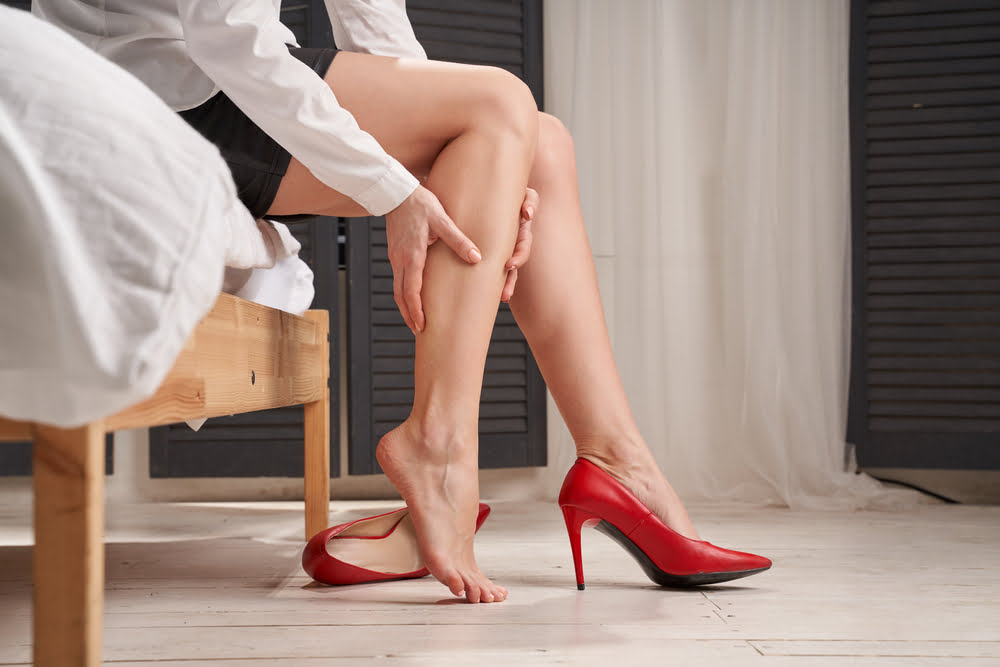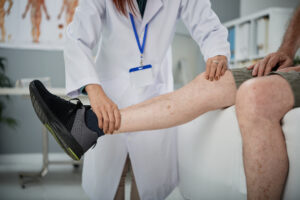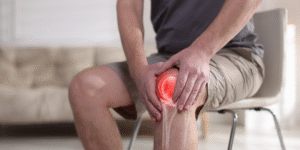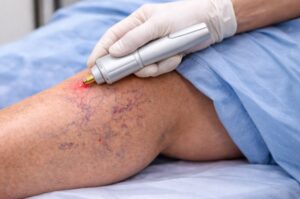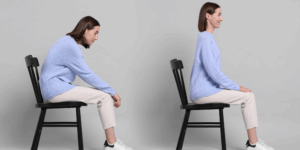Experiencing heavy legs can be more than just a minor inconvenience; it can significantly impact your daily life and overall well-being. This sensation, often described as tired, achy, or leaden legs, can be caused by various factors ranging from lifestyle choices to underlying medical conditions. In this article, we will delve into the common causes of heavy legs and explore effective strategies to find relief, helping you regain mobility and comfort.
Common Causes of Heavy Legs
- Poor Circulation
- Chronic Venous Insufficiency (CVI): This condition occurs when the veins in your legs are unable to pump blood back to the heart effectively, leading to pooling of blood and a feeling of heaviness.
- Peripheral Artery Disease (PAD): PAD is caused by the narrowing of the arteries, reducing blood flow to the limbs and resulting in heavy, painful legs.
- Muscle Fatigue and Overuse
- Exercise and Physical Activity: Intense workouts or prolonged periods of standing can lead to muscle fatigue and soreness, contributing to the sensation of heavy legs.
- Dehydration: Lack of proper hydration can cause muscle cramps and fatigue, exacerbating the feeling of heaviness in the legs.
- Lifestyle Factors
- Sedentary Lifestyle: Prolonged sitting or standing without movement can impede blood flow and cause the legs to feel heavy and tired.
- Obesity: Excess body weight puts additional pressure on the legs, increasing the risk of poor circulation and muscle fatigue.
- Medical Conditions
- Varicose Veins: Enlarged, twisted veins can cause discomfort and a heavy feeling in the legs.
- Lymphedema: This condition involves the buildup of lymph fluid in the tissues, leading to swelling and heaviness in the legs.
- Diabetes: High blood sugar levels can damage nerves and blood vessels, contributing to poor circulation and heavy legs.
- Nutritional Deficiencies
- Iron Deficiency Anemia: Low levels of iron can reduce oxygen delivery to muscles, causing fatigue and heaviness in the legs.
- Magnesium Deficiency: Magnesium is essential for muscle function, and a deficiency can lead to muscle cramps and heaviness.
Finding Relief for Heavy Legs
- Improve Circulation
- Exercise Regularly: Engage in activities such as walking, swimming, or cycling to promote blood flow and strengthen leg muscles.
- Elevate Your Legs: Elevate your legs above heart level for 15-20 minutes daily to reduce swelling and improve circulation.
- Compression Stockings: Wearing compression stockings can help support veins and improve blood flow, reducing the sensation of heavy legs.
- Adopt a Healthy Lifestyle
- Stay Hydrated: Drink plenty of water throughout the day to prevent dehydration and muscle cramps.
- Maintain a Healthy Weight: Losing excess weight can reduce the strain on your legs and improve overall circulation.
- Avoid Prolonged Sitting or Standing: Take breaks to move around and stretch your legs to prevent blood from pooling in your lower extremities.
- Manage Underlying Medical Conditions
- Consult a Healthcare Professional: Seek medical advice if you suspect conditions such as CVI, PAD, or diabetes. Proper diagnosis and treatment are crucial for managing these conditions.
- Medications and Treatments: Depending on the underlying cause, your doctor may prescribe medications or recommend treatments such as sclerotherapy for varicose veins or physical therapy for muscle fatigue.
- Diet and Nutrition
- Iron-Rich Foods: Incorporate foods like lean meats, leafy greens, and beans to boost iron levels and improve oxygen delivery to muscles.
- Magnesium Supplements: Consider magnesium supplements or foods like nuts, seeds, and whole grains to support muscle function.
- Home Remedies and Alternative Treatments
- Cold Water Immersion: Soaking your legs in cold water can help reduce inflammation and alleviate heaviness.
- Massage Therapy: Regular massages can improve circulation and relieve muscle tension, reducing the sensation of heavy legs.
- Herbal Remedies: Some herbal remedies, such as horse chestnut extract and ginkgo biloba, may help improve circulation and reduce leg heaviness.
Conclusion
Heavy legs can be a symptom of various underlying issues, but with the right approach, relief is attainable. By understanding the causes and implementing lifestyle changes, medical treatments, and alternative remedies, you can alleviate the discomfort and regain your mobility. If heavy legs persist or worsen, it is essential to consult a healthcare professional for a thorough evaluation and appropriate treatment plan. Take proactive steps today to ensure your legs remain light, healthy, and ready to carry you through life with ease
Frequently Asked Questions (FAQs)
1. What are the common causes of heavy legs?
Common causes include prolonged sitting or standing, poor blood circulation, muscle overuse, dehydration, varicose veins, nerve compression, or underlying conditions such as venous insufficiency.
2. Are heavy legs a sign of a serious condition?
Not always. Occasional heaviness is usually harmless, but persistent or worsening symptoms-especially with swelling, pain, numbness, or skin changes-may indicate an underlying medical issue and should be evaluated.
3. When should I see a doctor for heavy legs?
You should seek medical advice if heavy legs persist, worsen over time, or are associated with pain, swelling, weakness, skin discoloration, or difficulty walking.
4. Can lifestyle changes help prevent heavy legs?
Yes, staying active, maintaining a healthy weight, avoiding prolonged sitting, wearing supportive footwear, and practicing regular stretching can help prevent heavy legs and improve overall leg comfort.
5. Can diet affect heavy legs?
Yes, a diet high in sodium can increase water retention and swelling.
Ready to Take the Next Step?
Don’t let pain or discomfort interfere with your daily life. At MVM Health – Pain, Vein & Wellness Clinic in East Stroudsburg, we focus on accurate diagnosis, effective treatment, and long-term relief. Reach out to our team today to plan your visit.
📞 Contact us: (610)20936-8214
Book your appointment today at appointment@mvmhealth.com

